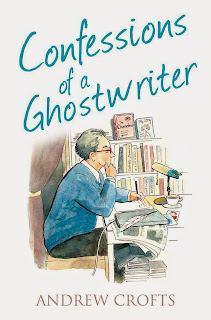“Everyone has a book in them” or so
the cliché goes, but in the past the gatekeepers of the publishing world would
throw up their hands in horror at such a sacrilegious, egalitarian thought. Now
their power to select which stories do and which stories don’t ever get into
print has gone; we can all write and publish whatever we want, as long as we
are not worried about things like sales figures or royalty payments. As long as
we undertake the project for sheer enjoyment alone.
Why would you want to do it? Well,
to start with, it’s fun. Remembering the past in order to write a memoir,
getting something off your chest if you have a topic you feel strongly about,
laying out your expertise if you want to write a how-to book. These are
pleasant things to do.
If you are writing a memoir or a
family history there is no telling how many people in the family will be
thrilled to read it, or use it as reference for a book of their own, either now
or centuries in the future. All the people who spend happy hours on heritage
sites like Ancestry.com would be delighted if they came across a book by an
ancestor which threw new light on their researches. Most of us have questions
that we wish we had asked our parents or grandparents before it was too late,
and would be thrilled to find the answers between the covers of a book.
The cost barriers are gone because
now you can publish on-line for free and you can print-on-demand a few copies
for next to nothing. If you want the book to have greater quality, or to be
printed in greater quantities, you can hire experts to help with the writing,
the editing, the cover design and whatever else you require – but none of that
is compulsory if you think you can do it alone and have the time to dedicate to
learning the necessary skills.
So even if no-one else ever reads
the whole book, you have still had the enjoyment of creating it and the
satisfaction of seeing the task completed.
But maybe that won’t be the end of
it. It is always foolish to dream of writing a “bestseller” – just as it is
foolish to dream of winning the lottery, but that doesn’t stop millions of
people from buying lottery tickets every day, and getting pleasure from their
dreams of winning a fortune. Once you’ve written the book you can put it in a
drawer and leave it to serendipity as to whether it is ever read, or your can give
copies to friends and relatives who you think might be interested, or you can see
if you can sell some copies or garner some reviews – there’s nothing to lose
apart from the time you put into the project, and everything to possibly gain.
If you decide to invest money in
editorial, publishing or marketing services then you need to be sure that you
are happy to write that money off should the project fail to produce any sort
of pay-back – but if it has been a pleasure to do, then does that matter?
Someone who loves golf and spends money on the game doesn’t expect to make a
fortune as a professional player, an artist who enjoys painting watercolours at
weekends doesn’t expect to get them shown in top galleries and bought for
millions by collectors. The pleasure lies in the creation of the thing, not the
selling of it. Not that there wouldn’t be pleasure to be had from successfully selling
that thing once created, but that would just be a bonus.
If the idea of writing a whole book
seems too daunting then start out by talking into a tape machine and
transcribing your words later, or simply think of it as a long letter to a
friend, telling them everything about your story. Once the bulk of the material
exists the editing and development of the material is relatively easy, (and is
another job you can hire people to help with if you have a budget).
It seems a shame to pass through
life and never leave anything written down for posterity – whether or not
posterity takes any notice, of course, is beyond your control.

